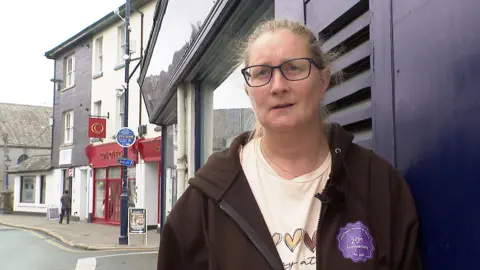**Struggling Families Face Food Insecurity During School Holidays**
In recent reports from charities, it has become evident that families are grappling with food insecurity during school holiday breaks, a distressing situation that poses significant challenges for many households. This concern is notably pronounced as educational breaks often lead to increased pressure on family finances, pushing many to rely on community support services.
A critical case is highlighted from Okehampton, located in Devon, where a community kitchen and foodbank have reported a dramatic rise in families in need of affordable meals. The demand has escalated to the extent that the establishment is forced to double its weekly food supply. This situation exemplifies the broader struggle faced by numerous families around the UK, especially during summer breaks when children are home and meal costs compound.
The director of the Newquay Foodbank, Zoe Nixon, elaborated on the ongoing struggle, describing the summer holidays as “a real pinch point.” Alarmingly, statistics suggest that one in four young children in the area may find themselves in need of food bank assistance, a sobering reality that underscores the food insecurity crisis that many families are facing. Nixon poignantly stated, “Parents should be able to enjoy this time with their children, not lie awake wondering how to put food on the table,” inviting a discussion on the social and economic structures that drive families to such distress.
In the previous year, the Trussell Trust reported that food banks in the southwest distributed over 6,000 parcels to families in areas like Plymouth, with a staggering 63% of these parcels going to households with children under 16. One of the co-founders of the Okehampton Community Kitchen and Foodbank, Rebecca Green, shared her concerns, noting a striking increase not just in emergency cases but in families simply needing affordable food options. She emphasized that many families are struggling to afford even one nutritious meal each day, leading to anxiety, fear, and a sense of pride that makes it challenging for them to seek help.
In addition to the food pantry services, the Okehampton Community Hub has made provisions for families by offering affordable food club memberships, where families can purchase boxes of food for just £2.50. Chrissie Read, a local mother of four, expressed her frequent concerns about managing expenses during the six-week summer break, emphasizing the financial strain that comes when children are out of school. Read noted, “We haven’t got the money to go out and have takeaways or have a day out, so having these £2.50 boxes are really helpful to just make those ends meet over those six weeks.”
This narrative, echoed across various regions, reveals a critical need for comprehensive food security solutions as an integral part of social welfare policies aimed at alleviating poverty. The existence of foodbanks and community kitchens signifies a response, but the increasing dependency on such services suggests underlying systemic issues that need urgent attention.
Furthermore, the community spirit is reinforced through local hubs where not only groceries are available but also a network of support for families trying to navigate their financial hardships. As this societal issue continues to escalate, the response from local governments, charity organizations, and community members will be crucial in ensuring families do not have to worry about their next meal during these formative school holiday periods.
In conclusion, the summer holidays, often seen as a time for families to relax and bond, are transformed into periods of anxiety for many parents across the UK, struggling to feed their children amidst rising living costs. The stories from Okehampton and other communities reinforce the necessity for ongoing dialogues about economic support and accessible food resources as key components in the fight against hunger and poverty.











